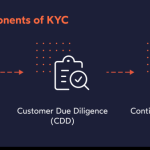Master The Law Society Know Your Client Rules: Unlock Success With Effective CTA!
Law Society Know Your Client Rules
Introduction
Dear Readers,
3 Picture Gallery: Master The Law Society Know Your Client Rules: Unlock Success With Effective CTA!



Welcome to our article on the Law Society’s Know Your Client (KYC) rules. In this article, we will provide you with a comprehensive overview of these rules and why they are important in the legal profession. We will explore the what, who, when, where, why, and how of KYC rules, including their advantages and disadvantages. Additionally, we will address some frequently asked questions about KYC rules and conclude with actionable steps for our readers to take. So, let’s dive in!
Table: Law Society Know Your Client Rules
Topic
Information
What are KYC rules?
Explanation of KYC rules and their purpose.

Image Source: rgstatic.net
Who is subject to KYC rules?
Overview of the entities and individuals affected by KYC rules.
When do KYC rules apply?
Discussion on the circumstances in which KYC rules are applicable.
Where are KYC rules implemented?
Insight into the jurisdictions that enforce KYC rules.
Why are KYC rules important?
Explanation of the significance and benefits of KYC rules.
How do KYC rules work?
Illustration of the process and procedures involved in complying with KYC rules.
What are KYC rules?

Image Source: practicepro.ca
🔍 KYC rules refer to a set of guidelines and procedures that law societies and legal professionals must follow to verify the identity and background of their clients. These rules aim to prevent money laundering, terrorist financing, and other illicit activities by ensuring that lawyers and firms have sufficient information about their clients.
Who is subject to KYC rules?
🔍 KYC rules apply to all lawyers, law firms, and other legal professionals who provide services to clients. Additionally, these rules may also extend to other entities, such as financial institutions, that have a professional relationship with lawyers or law firms.
When do KYC rules apply?

Image Source: boltdns.net
🔍 KYC rules are applicable at the initiation of a client-lawyer relationship. They require lawyers to perform due diligence and obtain relevant information about the client’s identity, address, and the nature and purpose of the legal services sought. These rules continue to apply throughout the duration of the professional relationship.
Where are KYC rules implemented?
🔍 KYC rules are implemented in various jurisdictions around the world. Different countries and regions may have their own specific regulations and requirements regarding client identification and verification.
Why are KYC rules important?
🔍 KYC rules play a crucial role in maintaining the integrity of the legal profession and preventing financial crimes. By conducting thorough client due diligence, lawyers can identify and mitigate the risks associated with money laundering, fraud, and other unlawful activities. KYC rules also help in safeguarding the reputation of legal professionals and maintaining public trust in the legal system.
How do KYC rules work?
🔍 The process of complying with KYC rules involves several steps. Initially, lawyers are required to collect and verify their clients’ identification documents, such as passports or driver’s licenses. They may also need to gather additional information about the client’s source of funds and the purpose of the legal services sought. Lawyers are then expected to assess the risk level associated with the client and continuously monitor the relationship for any suspicious activities.
Advantages and Disadvantages of KYC Rules
👍 Advantages:
1. Enhanced security and reduced risk of financial crimes.
2. Protection of legal professionals and firms from potential legal and reputational damage.
3. Strengthening of public trust in the legal profession.
👎 Disadvantages:
1. Additional administrative burden and costs for legal professionals.
2. Potential delays in client onboarding due to the KYC process.
3. Compliance challenges for international law firms operating in multiple jurisdictions.
Frequently Asked Questions (FAQs)
Q1: Are KYC rules the same worldwide?
A1: No, KYC rules may vary across different jurisdictions, although their underlying principles are generally similar.
Q2: Can lawyers refuse to take on clients who do not comply with KYC requirements?
A2: Yes, lawyers have the right to decline representation if clients fail to meet the KYC obligations.
Q3: Are there any penalties for non-compliance with KYC rules?
A3: Yes, legal professionals and firms may face disciplinary actions, fines, or even criminal charges for non-compliance with KYC regulations.
Q4: Can lawyers share their clients’ KYC information with third parties?
A4: Generally, lawyers are required to maintain client confidentiality and may only disclose KYC information under specific legal or regulatory circumstances.
Q5: Do KYC rules apply to all types of legal services?
A5: Yes, KYC rules apply to all legal services, regardless of their nature or complexity.
Conclusion
In conclusion, understanding and adhering to the Law Society’s Know Your Client rules are essential for legal professionals. By following these rules, lawyers contribute to the prevention of financial crimes and the overall integrity of the legal system. While there may be some challenges and additional responsibilities associated with KYC rules, the benefits of enhanced security and public trust outweigh the drawbacks. As legal professionals, it is our duty to prioritize client due diligence and ensure compliance with KYC regulations.
Final Remarks
Dear Readers,
Thank you for taking the time to read our comprehensive article on the Law Society’s Know Your Client rules. We hope that you found this information valuable and informative. It is important to note that the specific requirements and regulations of KYC rules may vary depending on your jurisdiction. Therefore, it is always advisable to consult the relevant authorities or legal professionals for detailed guidance. If you have any further questions or would like more information, please feel free to reach out to us. We are here to assist you.
Best regards,
Your Legal Insights Team
This post topic: Law and Society


